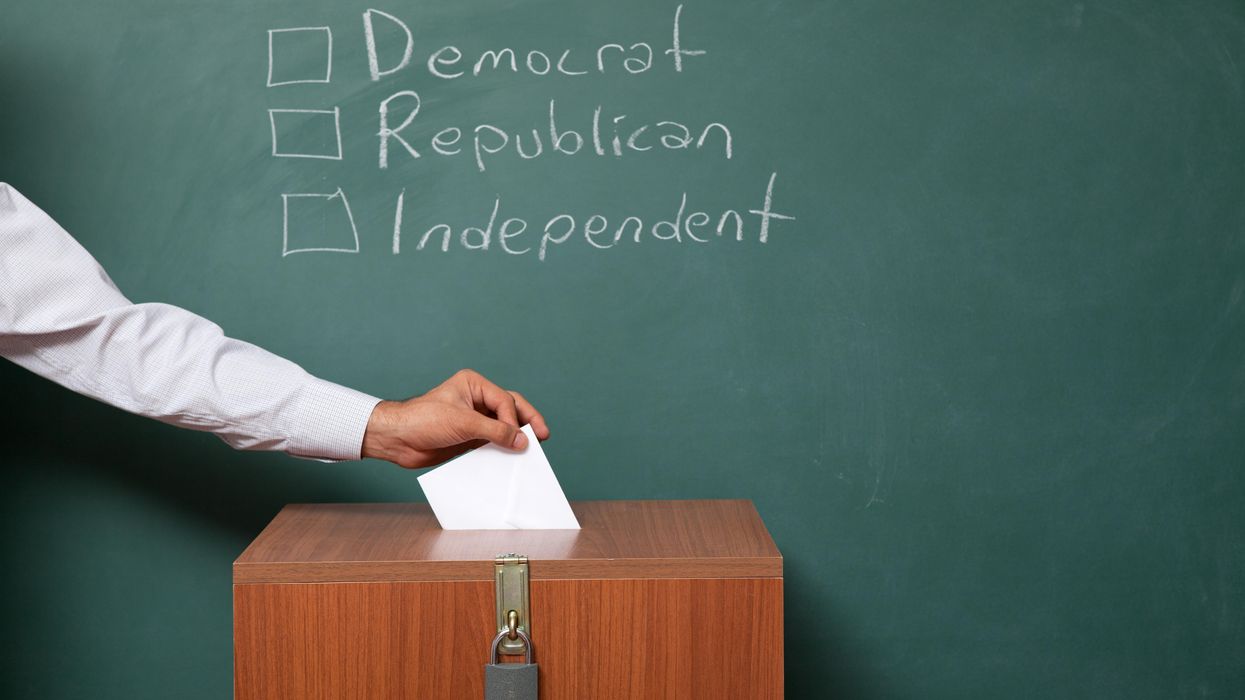Klug served in the House of Representatives from 1991 to 1999. He hosts the political podcast “ Lost in the Middle: America’s Political Orphans.”
Jackie Salit has been fighting what seems like a lonely battle for many years, but now she watches with pride as her work begins to take root all over the country. Largely ignored by the mainstream press and dismissed by the political pros, her cause – independent voter registration – is surging around the country.
Salit’s first major success as head of the Independent Voter Project was rallying independent voters around Michael Bloomberg in his initial run for mayor in 2001. “The independents were Mike's margin of victory in the first election. He won by 35,000 votes, and we got him 60,000 votes on the independent party line,” she recalls.
Nowhere in the country is the burgeoning movement gaining traction faster than in the Southwest. In Arizona and Nevada more people are now registered as independents than Republicans or Democrats.
Most political operatives dismiss the trend as posturing by voters who don’t want to admit that they are really Republicans or Democrats. Mike Murphy, who was John McCain’s campaign manager and now teaches at the University of Southern California, says their patterns are really not very independent.
“A lot of them vote in a very predictable way. There are a lot of Republicans still voting in a very fiscally conservative way. And Democrats who still vote for Democrats although they hate the whole woke thing.”
Interestingly, Arizona houses the only political science department in the country dedicated to studying independents. Thom Reilly, co-director of Center for an Independent and Sustainable Democracy at Arizona State University, says Murphy is wrong. You have to study independent voters over time.
“What we found is that independents, instead of being leaners, they're unpredictable. They're all over the place,” he said. They can lean one way in any given election, but they shift constantly.” He points out that independents voted for Barack Obama, pivoted to Donald Trump and then on to Joe Biden.
What do independents want in the next election? Like many political orphans, they want a choice other than Biden or Trump. New Hampshire independents are called unaffiliated on election rolls, where they account for more than 40 percent of voters. In the recent New Hampshire presidential primary, they cast 70 percent of the votes for Nikki Haley.
Salit says the two parties are consumed with one single idea – winning elections – which is more important than actually doing anything in office. Now, she hopes, an emerging force in American politics will send a powerful message that it’s time to change that paradigm.
In the latest episode of “Lost in the Middle,” we argue with Murphy about the power of the independent voter; look back at the lessons to be learned from pro wrestler Jesse Ventura's run for governor in Minnesota and visit Arizona State University, home of the only political science department that specializes in independent voters.




















